Search
Search Results
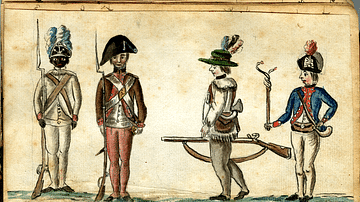
Definition
1st Rhode Island Regiment
The 1st Rhode Island Regiment, also known as Varnum's Regiment or the Black Regiment, was a regiment of the Continental Army during the American Revolutionary War (1775-1783). It was notable for being the first American military unit to consist...
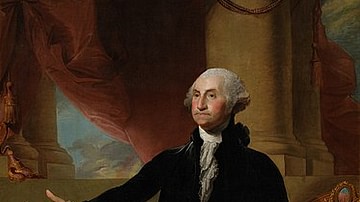
Definition
US Presidential Election of 1789
The US presidential election of 1789 was the first presidential election to take place after the ratification of the United States Constitution. Held on 4 February 1789, it resulted in the unanimous election of George Washington (l. 1732-1799...
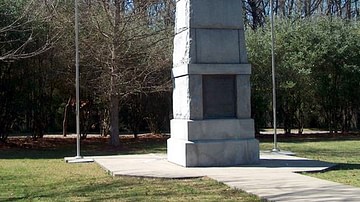
Article
Trail of Tears: Memorial and Protest of the Cherokee Nation by John Ross
The Trail of Tears was the forced relocation of the "Five Civilized Tribes" – Cherokee, Chickasaw, Choctaw, Muscogee Creek, and Seminole – from their ancestral lands in the Southeastern region of the United States to "Indian Territory" (modern-day...
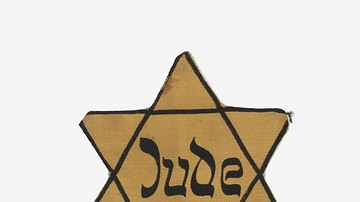
Article
Why Did Hitler Hate Jewish People?
The leader of Nazi Germany Adolf Hitler (1889-1945) identified Jewish people as enemies of the state, presenting them through relentless propaganda as responsible for Germany's economic and cultural decline. Basing this propaganda on White...
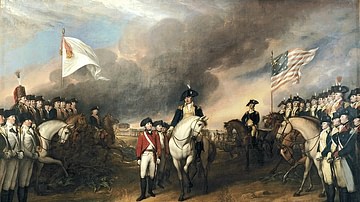
Definition
American Revolutionary War
The American Revolutionary War (1775-1783), or the American War of Independence, was a conflict between Great Britain and its 13 North American colonies, who declared independence as the United States of America. Initially a rebellion within...
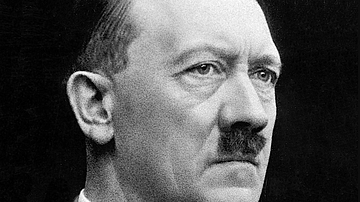
Definition
Adolf Hitler
Adolf Hitler (1889-1945) was the dictator of Nazi Germany from 1933. He gained power by making popular promises like improving Germany's economy and status in Europe, but when he took these policies too far, he was responsible more than anything...
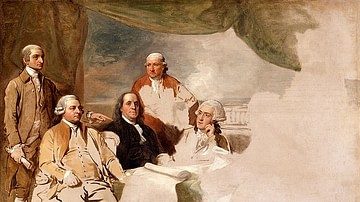
Definition
Treaty of Paris of 1783
The Treaty of Paris, signed on 3 September 1783 by representatives from Great Britain and the United States, was the peace agreement that formally ended the American Revolutionary War (1775-1783) and recognized the United States as an independent...
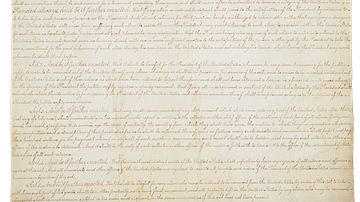
Definition
Alien and Sedition Acts
The Alien and Sedition Acts were four laws passed by President John Adams and the Federalist-controlled Congress in 1798 that restricted immigration and free speech in the United States. Framed by the Federalist Party as a necessary measure...

Definition
John Marshall
John Marshall (1755-1835) was an American lawyer and statesman, who served as the fourth chief justice of the United States Supreme Court from 1801 until his death in 1835. Considered one of the most influential chief justices in US history...

Definition
Marie Antoinette
Marie Antoinette (l. 1755-1793) was the queen of France during the turbulent final years of the Ancien Régime and the subsequent French Revolution (1789-1799). With the ascension of her husband Louis XVI of France (r. 1774-1792), she became...